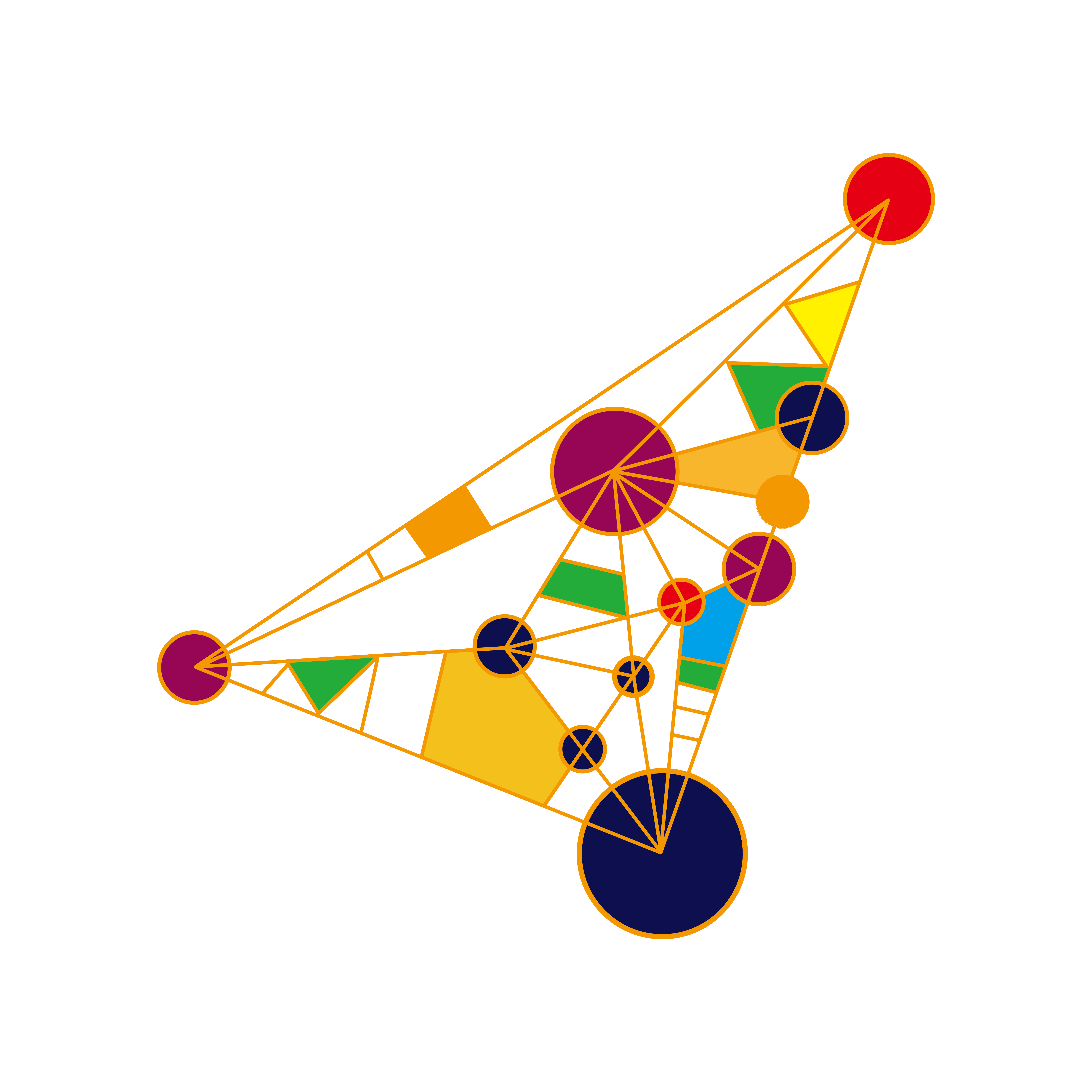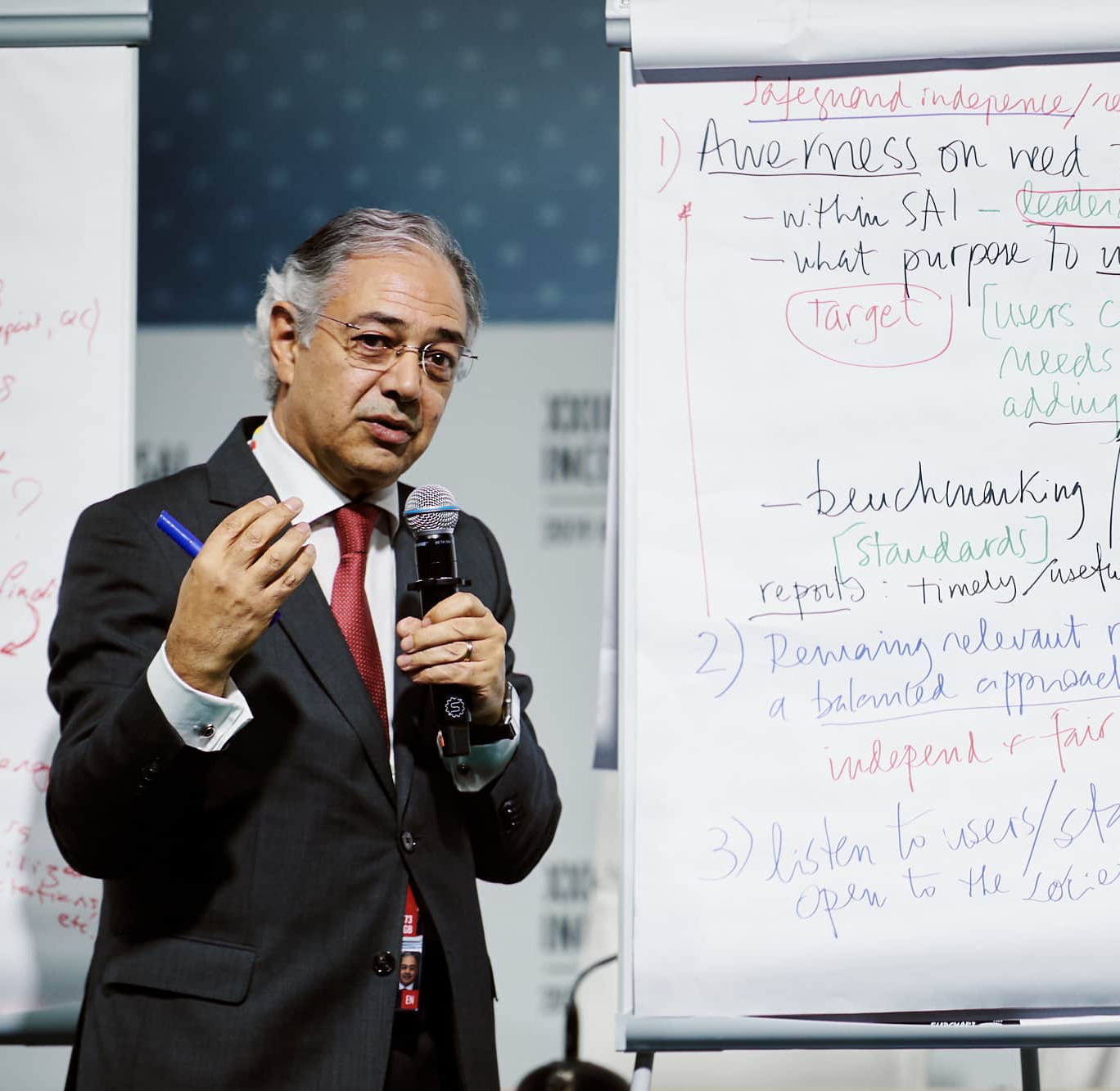Progress
Auditing implementation of SDGs is not a new thing for many SAIs and has been going on for a couple of years (Bahamas, Costa Rica, Indonesia, UK). The general approach implies including an SDG-related statement in audit reports when appropriate (Bahamas) or carrying out specific audit on the progress of government agencies in achieving national priorities (Costa Rica, Indonesia, Jordan, Russia). There has already been performed a great number of audits related to particular SDGs (Peru). However, the outcome-based performance measurement is not such a wide-spread audit activity and has been in place in few countries (UK, USA, North Macedonia).
UK:
This topic is aligned with the UK NAO’s audit approach which is well-established in this area and predates the Moscow Declaration. We have a long-held interest in auditing the achievement of outcome-based performance measures, and also government entities’ approach to developing performance measurement systems.
North Macedonia:
One aspect of SAO audits is to check whether the government program or measure has achieved expected results and there are measurable indicators in place for its implementation, and whether it is monitored and the results are reported on, in order to ensure implementation of national goals and SDGs.
Some SAIs report to have started preparatory work and launched the collection of performance-related data from central government auditees, with a view of using these to plan performance audits in these entities (Cyprus). Other steps completed in this area include establishing interagency cooperation (Belize), making necessary adjustments to the structure of SAI (India), and starting training courses for employees (Bahrain, Ecuador).
Bahrain:
The NAO began implementing some training courses to train employees of the entities subject to its audit on many aspects and related matters, including raising awareness of the importance of accountability and transparency to support the achievement of government action programs and the sustainable development goals.
Certain efforts have been made by the international community, which includes INTOSAI initiatives to enhance the contribution of SAIs towards achieving the 2030 Agenda and the sustainable development goals (establishing the Working Group on SDGs and Key Sustainable Development Indicators chaired by SAI Russia) and various IDI projects (such as the "Sustainable Public Procurement" initiative, in which officials are trained to prepare public procurement audits aligned with SDG 12). It is worth mentioning that efforts in this area have proved useful and even yield financial benefits for national governments.
USA GAO:
We apply a formal process for tracking the results of our work, which in 2019 resulted in over 1,400 improvements in government programs. In 2019, our work resulted in over $214 billion in financial benefits, which equals a return of $338 on every dollar invested in GAO. We make numerous recommendations to enhance the transparency of government, including government spending, and demonstrate our commitment to transparency by publishing nearly all of our reports and testimonies on our public website.
Challenges
Unsurprisingly, the COVID-19 pandemic has been identified as one of the most evident and serious challenges for the process. It puts governments under strain to achieve national priorities and the SDGs (Finland), creates a risk that national priorities change dramatically and downsize the importance of SDGs (Portugal), and undermines the continuity of SAI operations when measures related to COVID-19, such as stay-at-home orders and remote work, need to be implemented (Austria). In this regard INTOSAI is expected to play an active role and help maintain the focus in this field (Portugal). Moreover, against the backdrop of the COVID-19 pandemic SAIs can bring added value to the aid process by ensuring that government efforts are aligned with relevant and plausible indicators (Austria).
France:
We apply a formal process for tracking the results of our work, which in 2019 resulted in over 1,400 improvements in government programs. In 2019, our work resulted in over $214 billion in financial benefits, which equals a return of $338 on every dollar invested in GAO. We make numerous recommendations to enhance the transparency of government, including government spending, and demonstrate our commitment to transparency by publishing nearly all of our reports and testimonies on our public website.
However, other difficulties turned out to be more complex and structural. Namely, given that national priorities require multi-stakeholder engagement for implementation of the SDGs, SAIs have to work in a more integrated way and formulate recommendations to complex outcomes of interlinked policies rather than to single auditees (Indonesia). It is harder to achieve accountability for cross-cutting-priorities between a number of government agencies and auditing policy coherence (Norway, Finland). Some other particular though not uncommon challenges include incomplete data to measure the achievement of related government programs, reliability, timeliness, and relevance of the information provided by governments, low political interest in long-term analysis of policy outcomes.
Therefore, SAIs have found themselves in the need of additional training, assistance and guidance in conducting this type of audit in order to enhance the auditing capabilities of the auditors (Saint Vincent and the Grenadines, Peru). It may be useful for an international standards body to determine performance criteria in all government areas, especially the most complex ones, against which to compare the results of key performance indicators (Malta).
Plans
Almost no SAIs denied having plans to work on SDGs and strengthening the accountability for their outcomes in the future. The immediate plans in this area focus on auditing COVID-19 related expenditures (Cyprus), performing relevant audits (Saint Vincent and the Grenadines) or training courses which were canceled because of the pandemic (Saint Kitts and Nevis). In general SDGs have been confirmed to take a meaningful place in audit plans for the next year (Chile, Czech, Bahrain, Myanmar, Peru) as well as, most importantly, in audit strategies for the upcoming period up to five years (ECA, UK, Jamaica, Peru, Thailand).
Contact Us
The Accounts Chamber of the Russian Federation
Department for International and Regional Cooperation
119121, Russia, Moscow, Zubovskaya street, 2










